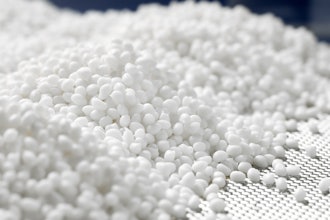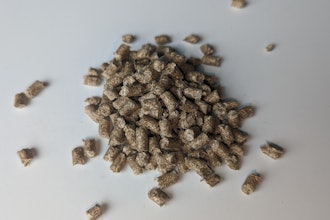
MORRIS, MINN. (AP) — Some Minnesota cities are grappling with how to reduce the amount of chloride being released from wastewater treatment plants into lakes and rivers, which can be toxic to fish.
Sara Heger is a research engineer at the University of Minnesota's Water Resources Center. Heger tells Minnesota Public Radio that home water softeners are often the reason municipal wastewater treatment plants release excess chloride.
Heger says there's no easy fix. Most treatment plants weren't designed to remove chloride from water, and it's often a difficult and expensive process.
The city of Morris is opening a new $18 million plant this spring, which will use lime and soda ash to centrally soften water before it's piped into homes and businesses. Residents will likely have to pay higher water rates to cover costs.






















